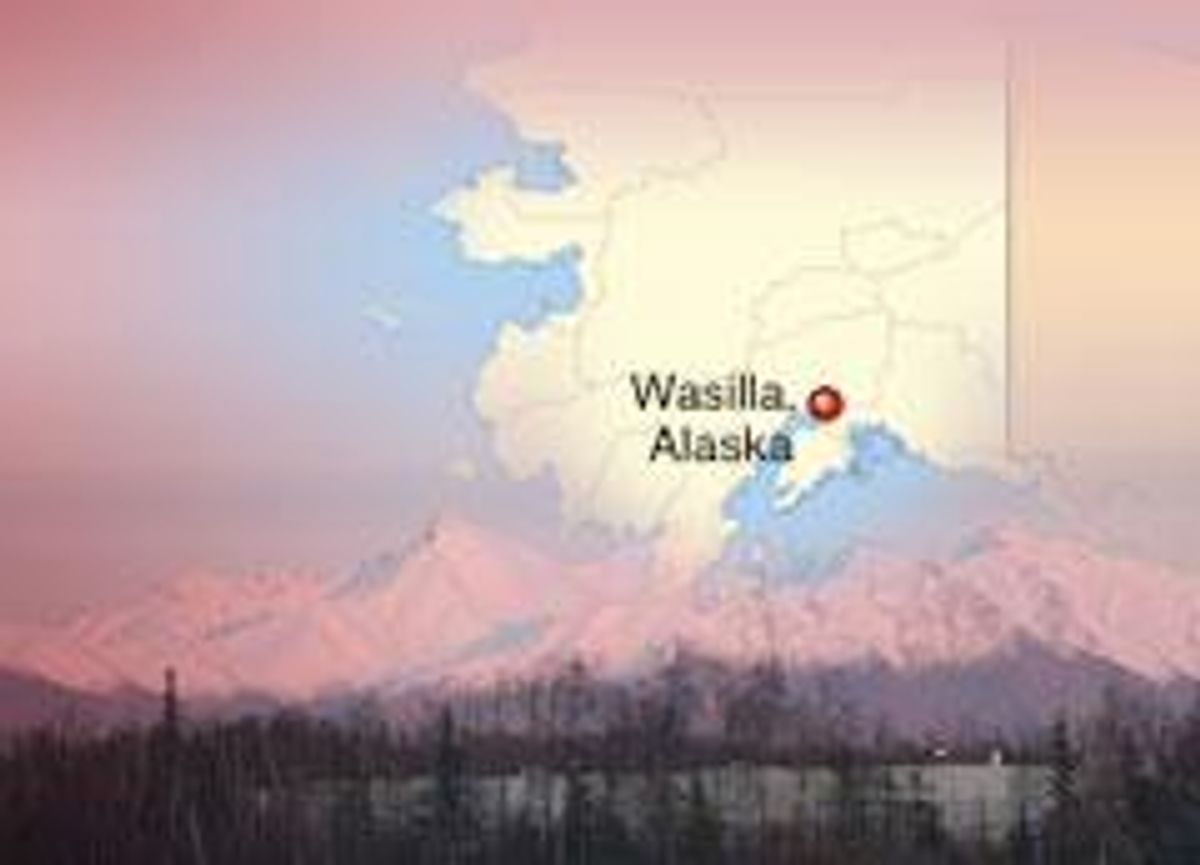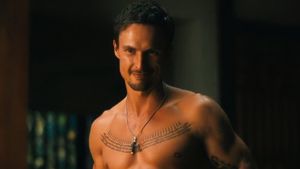The surprise
selection of Alaska Governor Sarah Palin for the Republican
ticket has generated intense interest in her majestic home
state and the previously little-known town of Wasilla.
The pick has left no shortage of questions, but in the
LGBT community, people might be wondering, what's
it like to be gay there - to be out in the place
Palin calls home?
Like the vast
terrain of Alaska - which is both the largest U.S.
state by area and the least densely populated with
nearly 700,000 people total - the gay
experience in the Last Frontier is marked by contradictions
that can perplex the rest of the country, and even
Alaskans.
"Alaskans
live by a mindset of 'live and let
live'," says former Wasilla resident
Aaron Stielstra. Yet Alaskan residents were among the first
in the nation to approve a constitutional amendment
banning gay marriage back in 1998. "I would be
lying if I told you I could rationally explain
it," Stielstra says of the disconnect, "I
don't know how."
Stielstra, 29,
was born in Anchorage and soon afterward his family moved
to Wasilla, about 40 miles north, where he lived until he
was 19. Despite the influential presence of
Evangelical Christian churches, and the absence of any
detectable gay community, he says he felt welcome when he
came out at 18.
The reaction he
received from his parents - who are solid Republicans
- lends some insight into what distinguishes
conservative Alaskans from their partisan counterparts
in the continental U.S.
One afternoon
during the '98 holiday season, Stielstra and his
mother were on their way to the mall in Anchorage when
he pulled their vehicle over and told her,
"There's something I need to tell you.
I'm gay."
He remembers
crying, enduring a long pause, and then his mother finally
asking, "Ok, are we still going
shopping?"
It took five
years before Stielstra summoned the courage to tell his
father, an avid hunter and frontiersman, whose opinion
worried him the most. But what Stielstra didn't
know was that his father had been in therapy in the
interim, trying to work on ways to make his son feel
comfortable enough to come out to him.
Even now, when
Stielstra returns home from Chicago to visit family, he
says he doesn't feel much of an anti-gay bias.
"I have never,
ever had a problem being openly gay in that town," he
says of Wasilla. "I have brought two men up there to
meet the family in the past five years, and no one's
even batted an eye."
He contrasts this
with reactions he's received in some of the
country's most celebrated gayborhoods.
"I once had an
experience where I was walking down the street in Boys
Town [Chicago] holding the hand of my then-boyfriend, and we
were heckled by people passing by in a truck,"
he says. "Similar things have happened to me in
Los Angeles, and in Orange County. Nothing like that has
ever happened to me in Wasilla, and I have acted the
same way there."
"I think
Wasilla is a pretty good generalization for most of the
state," he says about the conservative
Republican town of 7,000.
Fellow Alaska
native Ryan Quinn, 27, says the socially conservative
outlooks of state residents are characterized more by
unfamiliarity than actual anti-gay bias.
"It's mostly lack of awareness, which could be
chalked up to not being exposed to gayness,"
says the Manhattan-based writer, who came out to
family and friends in Wasilla after his freshman year away
at college, and even brought a boyfriend to visit.
"The reaction was overwhelmingly positive from
the people I heard from, and certainly from the people who
know me on a personal basis," he says.
"I've never encountered homophobia in
Alaska."
For Quinn, Alaska
and Alaskan attitudes are defined by the geographical
isolation and separateness from the rest of the country.
"What
surprises me the most, now having lived outside
Alaska," he says, "is there's
just this huge divide in social world experience, and it
covers everything - from seeing homeless people on
the street, to crime, racial diversity and exposure to
gay people. There's just none of that in
Alaska."
Will Hanna, 30,
who moved to Alaska from what natives call "The Lower
48," agrees.
"It kind
of feels like its own country sometimes," he says,
referring to the strong culture of hunting and
individual rights that often finds expression in gun
ownership. "It wouldn't be unusual to see
someone walking around Wasilla with a .45 strapped to
them."
Hanna, a New
Mexico native, made the trek to Alaska, where his mother
lives, and tried life in small, conservative towns including
Wasilla and Kenai. He moved to Anchorage, the
state's largest city and de facto gay capital,
in 2004 and is pleased with the small gay community he
found.
"I
probably have five or six really close gay friends,"
he says of the group he met online and in the
city's one reliably gay bar. "We go out
all the time. We go hiking, bike riding, out to dinner, and
hang out at each other's houses."
More than 350
miles north in Fairbanks, transplant Tim Stallard, 34, also
finds comfort in the small, independent-spirited and
increasingly assimilated gay community around him.
Stallard, who came to Alaska from California in 1993,
owns and operates Out in Alaska, which takes
out-of-state gay tourists on adventure tours throughout the
state. He says the groups are well received in small
towns, some of which include not only right-wing
activists, but also ex-hippies and other left-leaning
sorts.
But in contrast
to the Alaskan natives The Advocate
interviewed, Stallard and his partner of 14 years are more
careful about public displays of affection. "Even
now, we're pretty conservative in public. I
think it would be smart for anybody up here to be
pretty low-key. People have guns," he says.
"Maybe holding hands is okay."
Stallard sums up
the political climate in Alaska as being a red
state with a large progressive minority. "Even among
our Republican voting compatriots," he adds,
"some are religious conservatives, and many
others are libertarians."
What's
important to note, say those interviewed, is that among this
Alaskan mix of progressives, libertarians and social
conservatives, viewpoints all seem to veer toward the
extreme ends of the spectrum. That may help explain
the fact that although gay issues are not the typical
political hot buttons they are in the rest of the nation, in
general, they can gain an unusually outsized head of
steam when they do appear.
Take the
religious crowd, who defy the general trend against
attending church in the Pacific Northwest.
"I think
the people who are religious happen to be a particular kind
of religious," says Heather Christensen, a
parish secretary at a progressive Episcopal church in
Anchorage. "There's a lot of whacky religious
stuff up here."
Christensen, 37,
moved to the area when her partner took a job there in
2005. The New Jersey native says that it is so easy to fit
into the mainstream look for women, she suspects many
lesbians may be passing as straight.
"A lot of
the stereotypes that people have about lesbians - it
just kind of looks like an Alaskan woman," she
says about the outdoorsy, active and strong image
projected by many of the locals, not to mention Gov. Palin.
"There are not a lot of high heels and skirts up
here."
But as usual, in
the complex moose stew of Alaska, that doesn't mean
Christensen feels at ease broadcasting her sexual
orientation, either.
"It's not the kind of place where I'd
feel comfortable walking hand-in-hand with my
partner," she says. "But you do see a decent
number of rainbow stickers on cars."

















































































